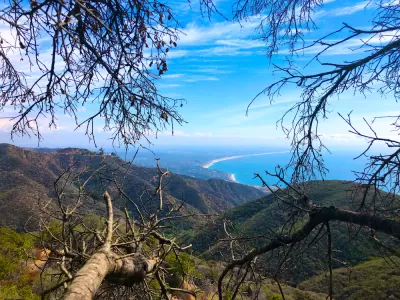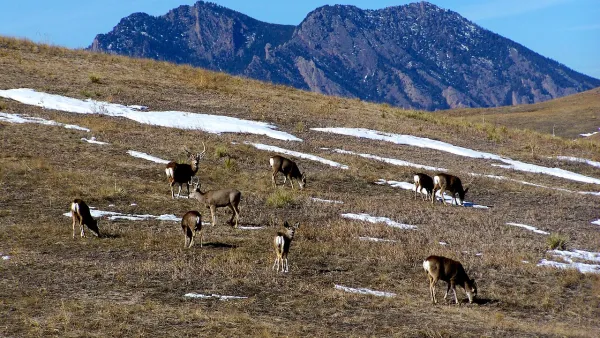The Los Angeles City Council recently approved an ordinance giving the Santa Monica Mountains Conservancy first right of refusal to purchase any surplus hillside land owned by the city so it can be preserved.

A few weeks ago, the Los Angeles City Council voted unanimously to approve an ordinance to ensure that the Santa Monica Mountains Conservancy (SMMC) have the first right of refusal on hillside land sale offers for conservation at the City of Los Angeles’ purchase price plus any administrative and management costs incurred by the City. After two years, SMMC will have an additional re-offer option if the land sale is not completed and is offered again to new buyers.
In 2008-2009, Los Angeles Mayor Antonio Villaraigosa initiated the “Own A Piece of LA” program to itemize, account for, and offer undevelopable slivers of city surplus land and/or remnant parcels to adjoining neighbors since they are deemed incapable of independent development and can only be of use to adjacent property owners. However, with advanced engineering innovations in recent decades, development in sensitive ecological areas has increased, resulting in the fragmentation and degradation of essential remaining wildlife habitat connectivity and corridors, particularly in the Santa Monica Mountains Zone which is home to the Southern California subpopulation of the Mountain Lion. Local mountain lions are now a “candidate” species under consideration for listing as “threatened” under the California Endangered Species Act (CESA) by the California Department of Fish and Wildlife (CDFW).
Los Angeles is located in a global biodiversity hotspot called the California Floristic Province, which means that it includes over 1,500 endemic plant species, that at least 70 percent of the area’s original habitat has been lost, and that the rest is endangered by human activities. Much of the remaining biodiversity within Los Angeles is located in the mountains and hillsides. Plants and animals need these interconnected ecosystems to continue to exist and flourish within this urban context and this biodiversity hotspot is jeopardized by increased development and habitat fragmentation.
FULL STORY: City hopes to preserve more hillside land for conservation

Maui's Vacation Rental Debate Turns Ugly
Verbal attacks, misinformation campaigns and fistfights plague a high-stakes debate to convert thousands of vacation rentals into long-term housing.

Planetizen Federal Action Tracker
A weekly monitor of how Trump’s orders and actions are impacting planners and planning in America.

Chicago’s Ghost Rails
Just beneath the surface of the modern city lie the remnants of its expansive early 20th-century streetcar system.

Bend, Oregon Zoning Reforms Prioritize Small-Scale Housing
The city altered its zoning code to allow multi-family housing and eliminated parking mandates citywide.

Amtrak Cutting Jobs, Funding to High-Speed Rail
The agency plans to cut 10 percent of its workforce and has confirmed it will not fund new high-speed rail projects.

LA Denies Basic Services to Unhoused Residents
The city has repeatedly failed to respond to requests for trash pickup at encampment sites, and eliminated a program that provided mobile showers and toilets.
Urban Design for Planners 1: Software Tools
This six-course series explores essential urban design concepts using open source software and equips planners with the tools they need to participate fully in the urban design process.
Planning for Universal Design
Learn the tools for implementing Universal Design in planning regulations.
planning NEXT
Appalachian Highlands Housing Partners
Mpact (founded as Rail~Volution)
City of Camden Redevelopment Agency
City of Astoria
City of Portland
City of Laramie





























